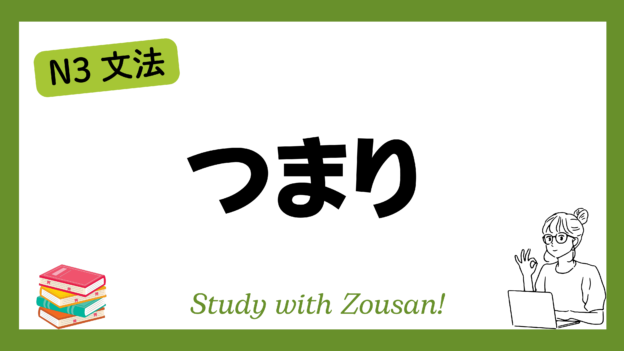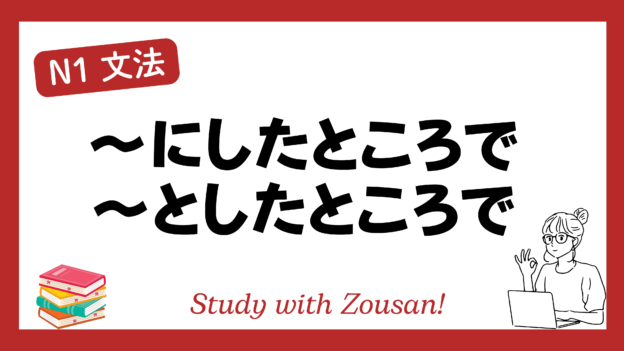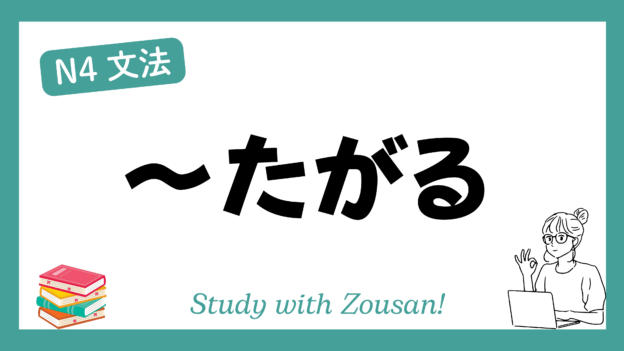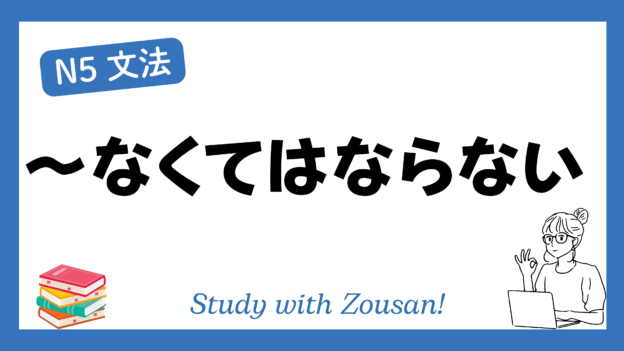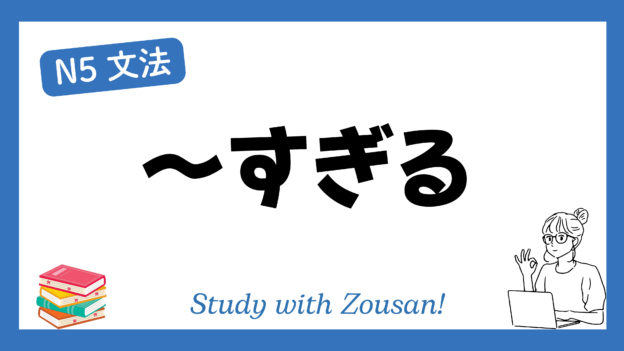N3文法:つまり
Meaning: “In other words…” / “In short…” / “That is to say…”
The word “つまり” is used to restate the meaning of a previous sentence or situation in a clearer, more concise manner. The speaker uses “つまり” to summarize or give a brief conclusion of what was just discussed, helping the listener understand more easily or clarifying the idea.
※Note:
- “つまり” is commonly used in conversations to help the listener grasp the main point or clarify a complex situation.
- This expression is effective for emphasizing key points or summarizing lengthy details.
Structure:
| Clause + つまり + alternative explanation |
Example:
-
-
-
🌟 彼はアメリカに留学しています。つまり、今は日本にいません。
(かれ は アメリカ に りゅうがく して います。つまり、いま は にほん に いません)
He is studying in the U.S. In other words, he is not in Japan now. -
🌟 たくさんの勉強をしている。つまり、彼は将来に備えているのだ。
(たくさん の べんきょう を して いる。つまり、かれ は しょうらい に そなえて いる の だ)
He is studying a lot. In other words, he is preparing for the future. -
🌟 彼女は忙しいと言っていた。つまり、今日は会えないということだ。
(かのじょ は いそがしい と いって いた。つまり、きょう は あえない という こと だ)
She said she’s busy. In other words, we won’t be able to meet today. -
🌟 この資料には間違いが多い。つまり、もう一度確認が必要だ。
(この しりょう には まちがい が おおい。つまり、もう いちど かくにん が ひつよう だ)
There are many errors in this document. In short, it needs to be checked again. -
🌟 彼の話は長かったが、つまり彼は仕事を辞めたいということだ。
(かれ の はなし は ながかった が、つまり かれ は しごと を やめたい という こと だ)
His story was long, but in short, he wants to quit his job. -
🌟 この料理は美味しい。つまり、人気がある理由もわかる。
(この りょうり は おいしい。つまり、にんき が ある りゆう も わかる)
This dish is delicious. In other words, I can understand why it’s popular. -
🌟 このプロジェクトは予算が足りない。つまり、中止するしかない。
(この プロジェクト は よさん が たりない。つまり、ちゅうし する しか ない)
This project lacks funds. In short, we have no choice but to cancel it. -
🌟 彼は日本語が上手だ。つまり、日本で生活していた経験があるのだろう。
(かれ は にほんご が じょうず だ。つまり、にほん で せいかつ して いた けいけん が ある の だろう)
He is good at Japanese. In other words, he probably has experience living in Japan. -
🌟 このレポートは不完全だ。つまり、まだ改善が必要だということだ。
(この レポート は ふかんぜん だ。つまり、まだ かいぜん が ひつよう だ という こと だ)
This report is incomplete. In short, it still needs improvement. -
🌟 彼の意見は賛成できない。つまり、提案に反対だ。
(かれ の いけん は さんせい できない。つまり、ていあん に はんたい だ)
I can’t agree with his opinion. In other words, I oppose the proposal.
-
-



